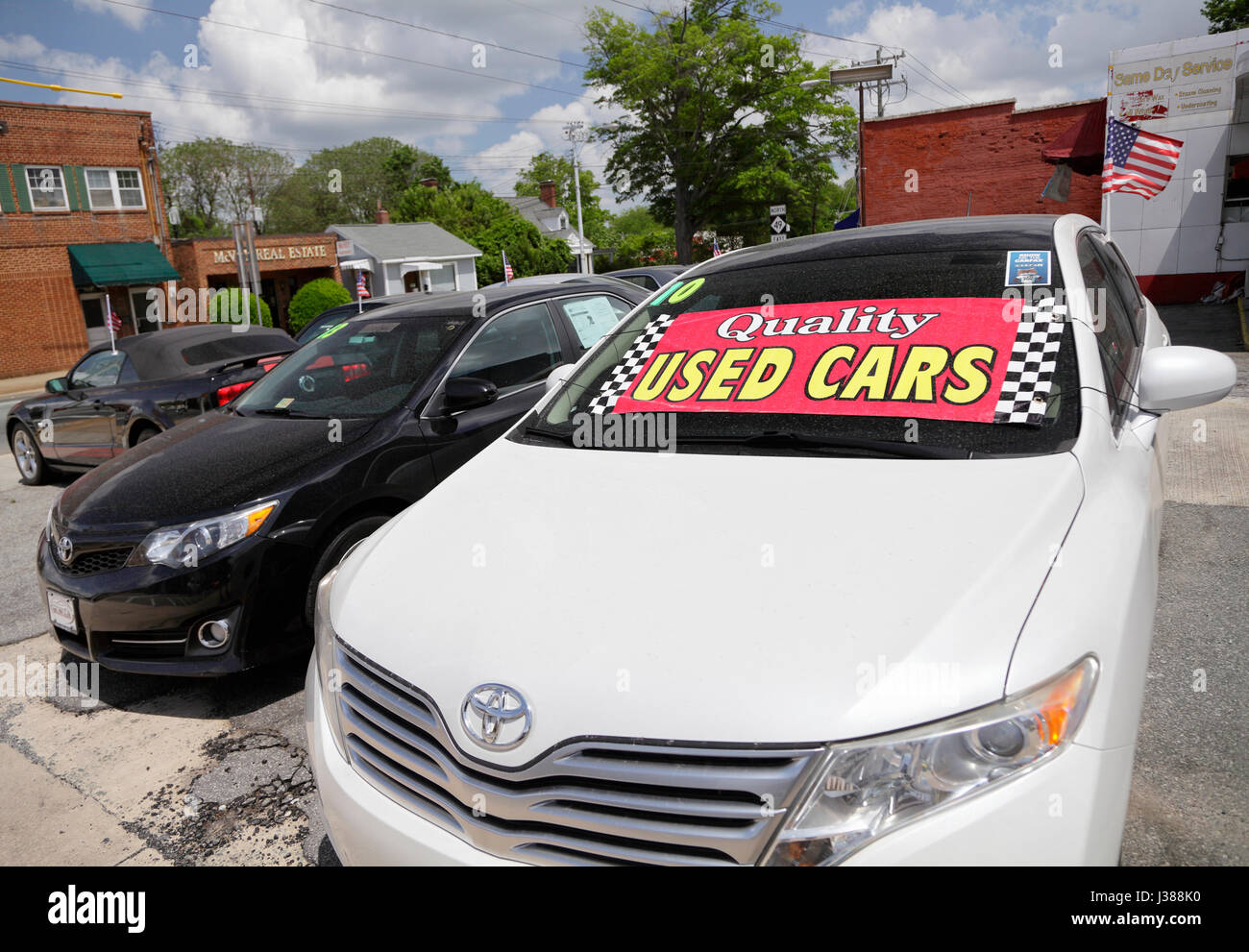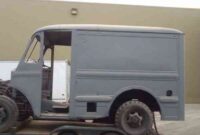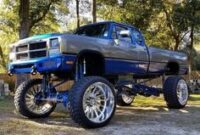Used Work Pickup Trucks: Your Comprehensive Guide to Smart Acquisition pickup.truckstrend.com
In the bustling world of trades, small businesses, and even personal projects, the pickup truck stands as an indispensable workhorse. From hauling materials to towing equipment, its versatility is unmatched. However, the sticker shock of a brand-new model can often deter those on a tight budget or just starting out. This is where the used work pickup truck enters the spotlight – offering a potent blend of utility, reliability, and significant cost savings. Far more than just a pre-owned vehicle, a used work pickup is a savvy investment, providing immediate functionality without the steep initial depreciation. This comprehensive guide will navigate the landscape of used work trucks, helping you make an informed decision that drives value for your endeavors.
Used Work Pickup Trucks: Your Comprehensive Guide to Smart Acquisition
Why Choose a Used Work Pickup? The Undeniable Advantages
Opting for a used work pickup truck comes with a compelling set of benefits that extend beyond just the price tag:
- Significant Cost Savings: The most obvious advantage. New vehicles depreciate rapidly, losing a substantial portion of their value in the first few years. Buying used means you let the first owner absorb this loss, getting more truck for your money.
- Reduced Depreciation: Once past the initial depreciation curve, used trucks hold their value better, meaning your investment is more stable over time.
- Immediate Availability: Unlike ordering a new truck with potential factory delays, used trucks are typically available for immediate purchase and deployment.
- Proven Reliability: Many work trucks are built to last. A used model that has already accumulated some mileage often indicates a robust, reliable vehicle, especially if it comes with a good service history.
- Lower Insurance & Registration Costs: Generally, older vehicles cost less to insure and register, adding to your overall savings.
- Access to Higher Trims/Features: Your budget for a new basic model might allow you to afford a higher trim level or more features in a used truck.

Key Considerations When Buying Your Used Work Pickup
Purchasing a used work truck requires careful consideration of several factors to ensure it meets your specific needs and offers long-term reliability.

- 1. Purpose and Payload Requirements:
- What will it be used for? Daily commuting with light tools, heavy material hauling, towing a trailer, or off-road job sites?
- Payload Capacity: How much weight do you need to carry in the bed? Light-duty (1/2 ton), heavy-duty (3/4 ton, 1 ton, or even larger) trucks have vastly different capabilities. Ensure the Gross Vehicle Weight Rating (GVWR) and Gross Combined Weight Rating (GCWR) meet your demands.
- Towing Capacity: If towing is a primary function, check the truck’s towing package (trailer hitch, brake controller, specific gearing) and its maximum tow rating.

- 2. Condition and Maintenance History: This is paramount.
- Service Records: Request detailed maintenance records. A history of regular oil changes, fluid flushes, and timely repairs is a strong indicator of a well-cared-for vehicle.
- Fleet vs. Private Ownership: Fleet vehicles (from companies, government) often have strict maintenance schedules, but also potentially harder usage. Private owner trucks might have less documented history but potentially gentler use.
- 3. Mileage vs. Age:
- High mileage isn’t always a deal-breaker if the truck has been well-maintained, especially for diesel engines built for longevity. Conversely, a very old truck with low mileage might indicate it sat unused for long periods, which can lead to issues with seals, gaskets, and fluids.
- Balance the two: A younger truck with moderate mileage (e.g., 12,000-15,000 miles/year) is often a good sweet spot.
- 4. Engine Type (Gas vs. Diesel):
- Gasoline: Generally cheaper to buy and maintain, quicker warm-up, better for stop-and-go city driving. Suitable for lighter work and less frequent heavy hauling.
- Diesel: Higher torque for heavy towing/hauling, better fuel economy under load, longer engine lifespan. More expensive to buy and maintain, slower warm-up, and can be finicky in cold weather. Ideal for consistent heavy-duty work.
- 5. Drivetrain (2WD vs. 4WD):
- 2WD (Two-Wheel Drive): Simpler, lighter, better fuel economy, lower purchase price. Sufficient for paved roads and light-duty tasks in non-challenging terrain.
- 4WD (Four-Wheel Drive): Essential for off-road job sites, muddy conditions, snow, or towing heavy loads on slippery surfaces. Comes with a higher purchase price, lower fuel economy, and more complex maintenance.
- 6. Cab Style & Bed Length:
- Cab Styles: Regular Cab (2 doors, 2-3 passengers), Extended Cab (2-4 doors, small rear seats), Crew Cab (4 full doors, spacious rear seats). Choose based on how many passengers or how much secure interior storage you need.
- Bed Lengths: Short (5.5-5.8 ft), Standard (6.5 ft), Long (8 ft). Match the bed length to the materials or equipment you typically transport.
- 7. Aftermarket Upgrades/Work Packages:
- Many used work trucks come with pre-installed features like utility bodies, ladder racks, toolboxes, lift gates, or snow plow mounts. While these add value, inspect their condition thoroughly. Check for proper installation, rust, and functionality. A truck that regularly plowed snow often experiences harder wear.
- 8. Rust and Corrosion:
- Common in regions with road salt or high humidity. Inspect the frame, suspension components, brake lines, and body panels for excessive rust. Surface rust on the frame is often normal, but deep, flaky rust can indicate structural compromise.
- 9. Tires & Brakes:
- These are wear items. Check tire tread depth and evenness (uneven wear can indicate alignment or suspension issues). Inspect brake pads and rotors. Factoring in the cost of new tires and brakes might be necessary.
Where to Find Your Used Work Pickup
The search for the right used work truck can lead you to various sources, each with its own advantages:
- New & Used Car Dealerships: Offer a wide selection, often certified pre-owned options (with warranties), financing options, and trade-in services. Prices may be higher due to overhead.
- Private Sellers: Often the source of the best deals, but require more vigilance on the buyer’s part regarding vehicle condition and history. No warranties typically.
- Auctions (Government, Fleet, Public): Can yield excellent bargains, especially from government or commercial fleets with documented maintenance. However, vehicles are usually sold "as-is," and a quick inspection is often all you get. High risk, high reward.
- Online Marketplaces & Classifieds: Websites like Craigslist, Facebook Marketplace, AutoTrader, and specialized commercial vehicle sites (e.g., CommercialTruckTrader.com) offer vast listings from both private sellers and dealerships. Be wary of scams and always verify information in person.
The Inspection Process: A Step-by-Step Guide
Never buy a used work truck without a thorough inspection. Here’s how to approach it:
- Exterior Check:
- Walk around the truck. Look for dents, scratches, rust spots, mismatched paint (indicating previous repairs), and panel alignment issues.
- Check the bed for severe damage, rust, or signs of heavy abuse. Look under any bed liners.
- Inspect the tires for tread depth, uneven wear, and sidewall cracks.
- Ensure all lights (headlights, tail lights, turn signals, brake lights) are working.
- Underbody Inspection:
- Look for fluid leaks (oil, coolant, transmission fluid).
- Inspect the frame for severe rust, cracks, or bends. This is critical for work trucks.
- Check the exhaust system for rust holes or loose components.
- Examine suspension components (shocks, springs, bushings) for wear or damage.
- Engine Bay Check:
- Look for signs of leaks, corrosion on battery terminals, frayed belts, or cracked hoses.
- Check fluid levels and color (oil, coolant, brake fluid, power steering fluid, transmission fluid). Dark or murky fluids can indicate neglect.
- Listen for unusual noises when the engine is running (knocking, ticking, squealing).
- Interior Assessment:
- Test all electronics: radio, AC/heater, power windows, locks, wipers, dashboard lights.
- Check for excessive wear on seats, steering wheel, and pedals.
- Look for dampness or mildew smell, which could indicate water leaks.
- Test Drive:
- Start the truck cold if possible. Listen to the engine.
- Pay attention to how the transmission shifts (smoothly, without jerking or slipping).
- Test the brakes (smooth stopping, no pulling).
- Listen for suspension noises over bumps.
- Check steering for excessive play or pulling.
- Drive at various speeds, including highway speeds if possible.
- Professional Pre-Purchase Inspection (PPI):
- Highly Recommended. For a small fee (typically $100-$300), a trusted independent mechanic can thoroughly inspect the truck, often identifying issues you might miss. This investment can save you thousands down the road.
Common Work Truck Configurations & What to Look For
- Standard Haulers: Basic pickups with open beds. Look for bed liner condition, tie-down points, and general bed integrity.
- Utility/Service Trucks: Equipped with specialized utility bodies with compartments. Check all compartment locks, door seals, interior shelving, and the overall condition of the utility body for rust or structural damage.
- Flatbed Trucks: Have a flat, open platform instead of a traditional bed. Inspect the integrity of the flatbed, tie-down points, and lighting. Ensure proper attachment to the chassis.
- Plow Trucks: Used for snow removal. These often experience significant strain. Inspect the frame, transmission, suspension, and the condition of the plow mount and hydraulics.
- Tow Trucks (Light Duty): Often equipped with a heavy-duty tow package. Verify the condition of the hitch receiver, wiring harness, and ensure the transmission and engine show no signs of excessive strain from past towing.
Financing & Insurance for Your Used Work Truck
- Financing: Used vehicle loans are available through banks, credit unions, and some dealerships. Be prepared with your credit score and financial documents. For commercial use, explore specific business vehicle loans.
- Insurance: Inform your insurance provider if the truck will be used commercially, as this may require a different policy or endorsements. Commercial vehicle insurance typically costs more but offers broader coverage.
Maintenance Tips for Your Used Work Truck
Once you’ve acquired your used work truck, proper maintenance is key to maximizing its lifespan and reliability:
- Follow Manufacturer’s Schedule: Even if the truck is older, adhere to the recommended maintenance intervals for oil changes, fluid checks (transmission, differential, coolant), and filter replacements (air, fuel, cabin).
- Regular Inspections: Periodically check tires, brakes, lights, and suspension components yourself.
- Address Issues Promptly: Don’t ignore warning lights, strange noises, or leaks. Small issues can quickly escalate into costly repairs.
- Keep it Clean: Wash the exterior regularly, especially the undercarriage if you drive in salty or muddy conditions, to prevent rust.
- Load Smart: Avoid consistently overloading your truck beyond its rated capacities, as this puts undue strain on the engine, transmission, and suspension.
Estimated Used Work Pickup Truck Price Guide
Please note: Prices for used vehicles vary wildly based on make, model, year, mileage, condition, trim level, geographical location, and current market demand. This table provides general estimated ranges for common categories of used work trucks and should be used as a guide, not a definitive price list. Always research current market values in your specific area.
| Truck Category | Age Range (Years) | Example Models | Estimated Price Range (USD) | Key Considerations Affecting Price |
|---|---|---|---|---|
| Light-Duty Work | 1-3 | Ford F-150, Chevy Silverado 1500, Ram 1500, Toyota Tundra, Nissan Titan | $30,000 – $55,000 | Low mileage, modern features, excellent condition, often higher trims. |
| 4-7 | F-150, Silverado 1500, Ram 1500, Tundra, Titan | $18,000 – $35,000 | Moderate mileage (70k-120k), well-maintained, some cosmetic wear. | |
| 8+ | F-150, Silverado 1500, Ram 1500, Tundra, Titan | $8,000 – $20,000 | Higher mileage (120k+), potential for minor repairs, basic features. | |
| Heavy-Duty Work | 1-3 | Ford F-250/350, Chevy Silverado/GMC Sierra 2500/3500, Ram 2500/3500 | $45,000 – $70,000+ | Low mileage, strong diesel engines, specialized towing/hauling features. |
| 4-7 | F-250/350, Silverado/Sierra 2500/3500, Ram 2500/3500 | $25,000 – $45,000 | Moderate mileage (70k-150k), often diesel, inspect for towing wear. | |
| 8+ | F-250/350, Silverado/Sierra 2500/3500, Ram 2500/3500 | $12,000 – $28,000 | High mileage common (150k+), thorough inspection of frame, transmission, engine. | |
| Utility/Service Trucks | Varies (often 5-10 years old) | Various chassis with utility bodies (e.g., Ford F-Series, Ram, Silverado) | $15,000 – $60,000+ | Condition of utility body, rust, specialized equipment, chassis condition. |
| Older Specialty Work Trucks | 10-20+ | Any make/model, often with specific upfits (plows, flatbeds) | $5,000 – $15,000 | Significant mileage, requires thorough inspection for major repairs, often project vehicles. |
Frequently Asked Questions (FAQ) About Used Work Pickup Trucks
Q1: What’s the "best" mileage for a used work truck?
A1: There’s no single "best" mileage. A truck with 150,000 miles that has been meticulously maintained can be a better buy than one with 80,000 miles that was neglected. Aim for a truck with a consistent service history, regardless of mileage, and prioritize a professional pre-purchase inspection.
Q2: Should I get a gas or diesel engine for my used work truck?
A2: It depends on your primary use. For consistent heavy towing, hauling extremely heavy loads, or long-distance driving, a diesel is usually more efficient and durable. For lighter duty work, occasional towing, or city driving, a gasoline engine is typically more cost-effective to purchase and maintain.
Q3: Is a professional pre-purchase inspection (PPI) really necessary?
A3: Absolutely. A PPI by an independent, trusted mechanic is one of the best investments you can make. They can identify hidden issues, potential future repairs, and give you leverage for negotiation, potentially saving you thousands in the long run.
Q4: Are utility body trucks worth it used?
A4: Yes, if the utility body is in good condition. They offer unparalleled organization and secure storage for tools and equipment. However, inspect the body thoroughly for rust, broken latches, or structural damage, as repairs can be costly.
Q5: How much can I expect to save by buying a used work truck instead of new?
A5: Significant savings are typical. A truck that is 3-5 years old can often be purchased for 30-50% less than its original MSRP, depending on the model and condition. This saving can free up capital for other business investments or equipment.
Conclusion
The used work pickup truck market offers an unparalleled opportunity to acquire a robust, reliable, and highly functional vehicle without the hefty price tag of a new model. By understanding your specific needs, diligently researching potential vehicles, and conducting thorough inspections, you can unlock incredible value. A well-chosen used work truck isn’t just a purchase; it’s a strategic investment that empowers your business or personal projects, proving that smart choices can indeed drive success on the road and on the job site. With careful planning and due diligence, your next workhorse could be waiting for you, ready to tackle any task for years to come.



